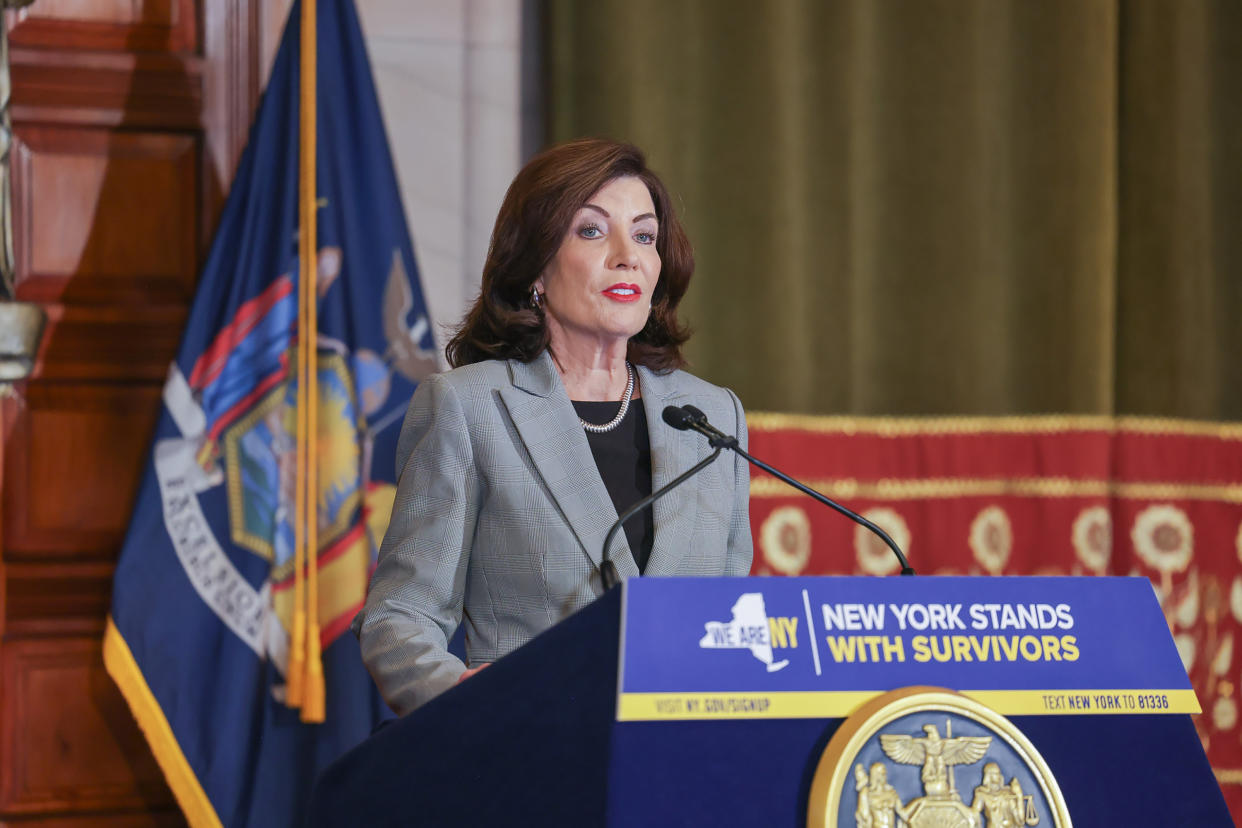Hochul signs Rape is Rape Act, expanding rape legal definition

- Oops!Something went wrong.Please try again later.
NEW YORK — A new law designed to increase protections for victims of sexual assault in New York by redefining rape in the state’s penal code is set to take effect in September.
The Rape is Rape Act, which was signed into law Tuesday by Gov. Hochul, updates the legal definition of rape to include other forms of forced sexual conduct.
Under current law, rape is defined as vaginal penetration by a penis. The new law — a version of which has been in the works for over a decade — redefines rape to include nonconsensual vaginal, oral and sexual conduct.
The legislation, which will apply to sexual assault cases committed starting on Sept. 1, will make it easier for victims and survivors of sexual assault to come forward and prosecute perpetrators, Hochul said Tuesday at a bill signing ceremony in Albany,
“We are reassuring survivors that when they walk into a police station or approach the witness stand that the full weight of the law is behind them now going forward,” the Democratic governor said. “Rape will be treated like the horrific crime that it is. The voices have been heard, and we affirm that justice will be served.”
According to Hochul, the legislation will ensure that all survivors are equally protected from such crimes while making sure offenders are held fully accountable.
State Sen. Brad Hoylman-Sigal, who sponsored the legislation, applauded his fellow lawmakers for the passage of the bill, which he says “will be particularly important in helping to protect members of the LGBTQ+ community, who are victims of rape and sexual assault at higher rates than cis-gendered heterosexual Americans.”
“Rape is Rape, plain and simple,” Hoylman-Sigal, one of the few openly gay elected officials to ever serve in the Senate, told the Daily News in an email. “In New York State we cannot allow outdated, heteronormative notions of sex to limit our ability to acknowledge that fact and to hold those who commit acts of sexual violence accountable.”
The Rape is Rape Act, which was first introduced in the Assembly in 2012, was inspired by a 25-year-old elementary school teacher who was raped by an off-duty police officer.
Even though now-former NYPD officer Michael Pena was charged with rape, criminal sexual act and predatory sexual conduct, he was only convicted of the lesser charges because the jury could not reach consensus on the rape charge, since they couldn’t agree whether there had been forced vaginal penetration.
“With the signing of this legislation and the expansion of the definition of rape, New York State’s penal law finally comes into alignment with the experiences of thousands of survivors across New York,” Emily Miles, the head of the New York City Alliance Against Sexual Assault, said.
_____

